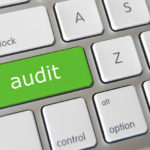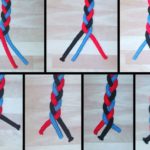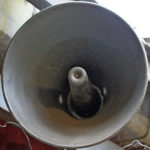We’re here at the trail head. Our goal is to reopen a bankruptcy case.
I can’t tell you comprehensively where this trail leads, but as bankruptcy lawyers, we often set off down the path.
As we find in the cases, the trip may not be necessary.
A starting point
I reached into my box of snippets for Mastery this morning and fetched up this note:
Here are the comments from an Order Denying Reopening that a friend received:
*Reopening a case is not necessary for the debtor to file adversary proceedings to enforce discharge injunction or seek civil contempt. See In re Menk, 241 B.R. 896, 910 (9th Cir. BAP 1999)
The court’s note on the rejected order went on:
(Reopening associated with filing a discharge-related, postclosing adversary proceeding is not of jurisdictional significance.); see also Collier on Bankruptcy, Paragraph 350.03[4], p. 350-11 (16th Ed., 2010) (reopening a case to enforce the discharge injunction of section 524(a) is not necessary for the court to render a decision because the court has jurisdiction under 28 U.S.C. section 1334.) Debtor may file his adversary complaints without reopening the main case.
I offer the case, not because it’s the last word on when you need to reopen a closed case, but rather because it’s a starting place.
Analysis of the citations to Menk make it clear that there is not uniformity among courts about when a case needs to be reopened for something to occur in the case.
What purpose in reopening
When I first started practice, before electronic filing, reopening the case seemed often about having the clerk recall the file from the federal archives up the freeway.
Without the file recalled, the court had no place to put the pleadings I wanted to file.
In this era of electronic records, we don’t need the case reopened for purposes of record retention.
In Menk, Judge Klein of the ED CA, looks at the basis for jurisdiction in the bankruptcy court and explores what can go on in a case after closing.
Why we care
This issue of when a case must be reopened in order to take some action ought to be of significance to us if we are going to be zealous defenders of the discharges granted our clients.
Menk is a 1999 case. It dealt with the post closing filing of an adversary proceeding to determine the dischargeability of a debt.
As debtor’s lawyers, we’re more often looking at discharge issues. The 9th Circuit, in 2011, told us specifically that one enforces the discharge injunction by motion.
Look at these cases, follow the breadcrumbs, either statutory or case cites, to the cases in your circuit. Figure out what’s required to get before a judge to further your client’s interests, post discharge.
Image courtesy of Wikimedia and Adumbvoget.









What about for filing a reaffirmation agreement? Are judges approving these types of motions?
Everything I see suggests that courts are not reopening cases to permit reaffirmations. The requirement for a reaffirmation agreement is that it be approved before the discharge is entered. Courts will delay entry of the discharge to allow for hearing on a motion to reaffirm, but not, I think, vacate the discharge to permit a reaff.
Hello any insight about the process to refile a adversary proceeding with the court. the first was denied due to improper process service on the defendant
what about motion to reopen to file for adversary proceeding against a creditor who just before closing of BK case forced the debtor to withdraw monies out of bank to pay them (a violation of stay protection and contacting them when they knew they were represented.) I have had both sides on this one, one side says you need to reopen, the other says you dont need to reopen but the ecf wont accept it. what to do???? is it also another route to take after the case closed (bk) file a district court case in violation of BK laws and state and federal laws?
Do I need to reopen my discharged 7 to file an adversary proceeding to attempt a discharge or reduction in student loan debt?
if a bankruptcy case is reopened can a defendant remove a civil action filed by debtor after the discharge into the bankruptcy court?